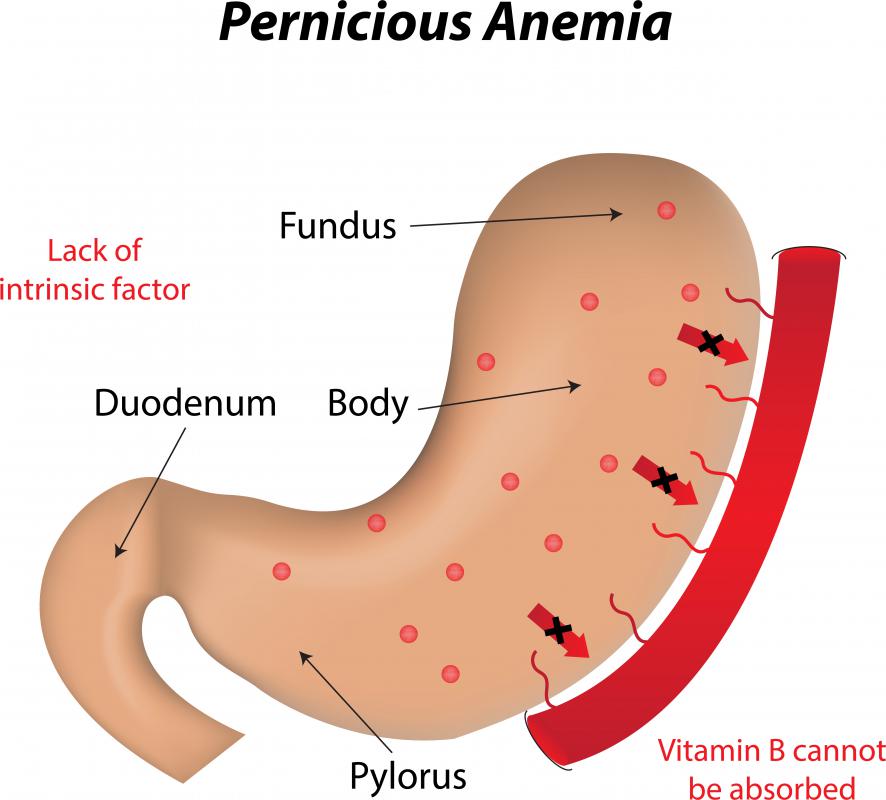At WiseGEEK, we're committed to delivering accurate, trustworthy information. Our expert-authored content is rigorously fact-checked and sourced from credible authorities. Discover how we uphold the highest standards in providing you with reliable knowledge.
What is the Schilling Test?
The Schilling test is a four-stage medical exam used to determine whether a patient has a vitamin B12 deficiency. It is used specifically to diagnose pernicious anemia, a disease in which the amount of red blood cells decreases because the body cannot absorb vitamin B12. The Schilling test is named for Robert F. Schilling, a doctor known for researching vitamin B12 and using urine to test for its absorption.
In the first stage of the Schilling test, the patient is given two doses of vitamin B12. The administrators then collect the patient’s urine and check its vitamin B12 levels. If the first stage is abnormal, then the patient will move on to Stage 2. In the second stage, the patient is given radioactive B12 with a protein from the stomach lining. The patient’s intestines should absorb the vitamin B12; if not, then the patient will proceed to the third stage.

During the third stage, the administrators will give the patient antibiotics for two weeks. The patient will return, and the subsequent test will reveal whether the patient has abnormal bacterial activity, which can cause low vitamin B12 levels. In the fourth stage, the patient will be given pancreatic enzymes for three days. If this stage of the Schilling test returns a positive result, then the pancreas is the cause of the low vitamin B12.

Pernicious anemia causes fatigue, depression, nausea, heartburn, and weight loss. Other symptoms include low blood pressure, muscle weakness, shortness of breath, neuropathic pain and diarrhea. Thomas Addison was the first physician to encounter the disease in 1849. At the time, it was called Addison’s anemia. Throughout the years, Richard Clarke Cabot, physician William Bosworth Castle, George Whipple, George Minot, William Murphy, Edwin Cohn, and other chemists studied the disease to learn its symptoms and how it could be treated.

What they found is that a deficiency of vitamin B12 keeps red blood cells from dividing normally. When the red blood cells are too large, they cannot carry a sufficient amount of oxygen through the body. Therefore, those who suffer from pernicious anemia are often tired and weak.
If this disease continues over time, it can cause heart, brain, and nerve damage. This disease can also cause stomach cancer. Years ago, if pernicious anemia was not treated, it was a deadly disease; it can now be treated easily with vitamin B12 shots or pills. There have been a few notable people with cases of pernicious anemia, including Alexander Graham Bell, Annie Oakley, and Norman Warne.
AS FEATURED ON:
AS FEATURED ON:


















Discuss this Article
Post your comments